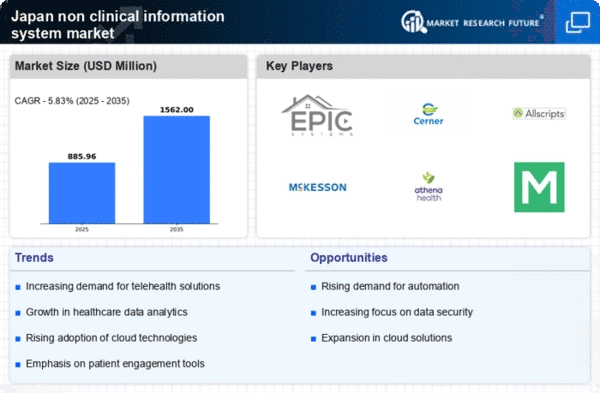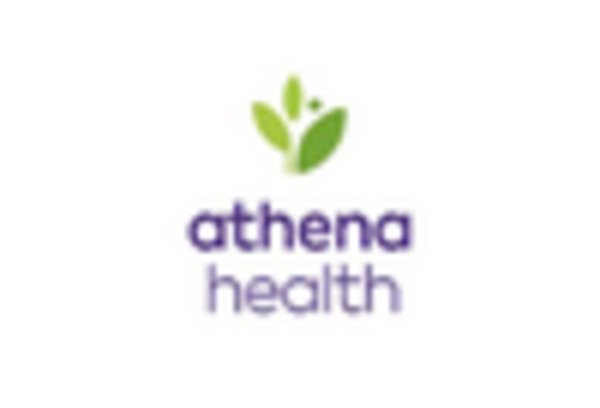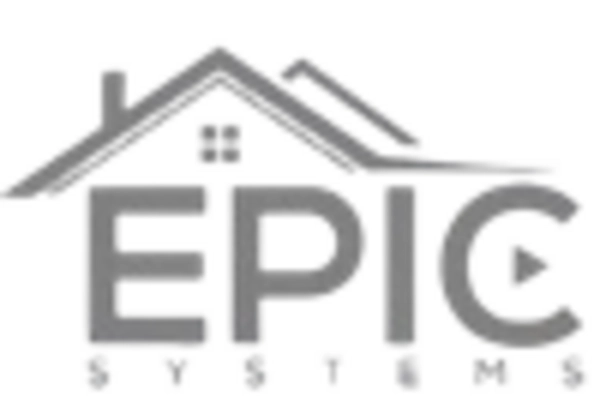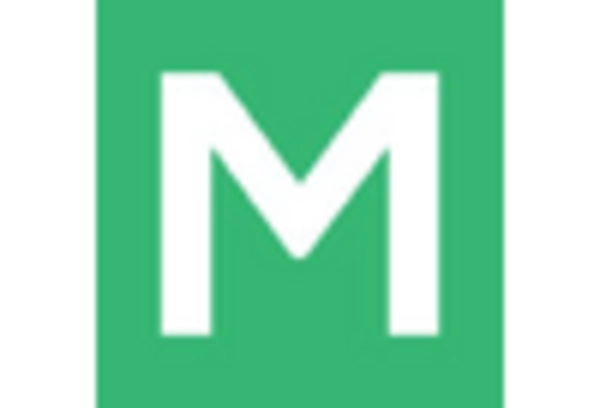Growing Focus on Patient-Centric Care
The shift towards patient-centric care is a driving force in the non clinical-information-system market in Japan. Healthcare providers are increasingly prioritizing patient engagement and satisfaction, leading to a demand for systems that support these objectives. The market is expected to witness a growth rate of around 9% as organizations seek to implement solutions that enhance communication and interaction with patients. Non clinical-information systems that facilitate appointment scheduling, feedback collection, and personalized communication are becoming essential tools for healthcare providers. This focus on patient-centric care not only improves patient outcomes but also fosters loyalty and trust, which are critical in a competitive healthcare landscape.
Technological Advancements in Data Management
Technological advancements play a crucial role in shaping the non clinical-information-system market in Japan. Innovations in data management technologies, such as artificial intelligence and machine learning, are transforming how healthcare organizations handle information. These technologies enable more accurate data analysis and reporting, which is essential for decision-making processes. The market is projected to grow by 12% over the next five years, driven by the increasing need for sophisticated data management solutions. As healthcare providers recognize the value of data-driven insights, investments in advanced non clinical-information systems are expected to rise, further propelling market growth. This trend indicates a shift towards more intelligent systems that can adapt to the evolving needs of healthcare organizations.
Regulatory Compliance and Standardization Needs
The non clinical-information-system market in Japan is significantly influenced by the need for regulatory compliance and standardization. As healthcare regulations become more stringent, organizations are compelled to adopt systems that ensure adherence to these regulations. This necessity is reflected in the market, which is anticipated to grow by 8% as healthcare providers seek solutions that facilitate compliance with local and national standards. Non clinical-information systems that incorporate compliance features are increasingly favored, as they help mitigate risks associated with regulatory violations. This trend underscores the importance of integrating compliance capabilities into non clinical-information systems, thereby enhancing their value proposition in the market.
Increased Investment in Healthcare IT Infrastructure
Investment in healthcare IT infrastructure is a significant driver of the non clinical-information-system market in Japan. As healthcare organizations recognize the importance of robust IT systems, funding for technology upgrades and new implementations is on the rise. The market is projected to grow by 11% as facilities allocate budgets towards enhancing their IT capabilities. This investment is crucial for supporting the integration of non clinical-information systems that improve operational efficiency and data management. Furthermore, as the healthcare sector continues to evolve, the demand for advanced IT infrastructure will likely increase, positioning the non clinical-information-system market for sustained growth in the coming years.
Rising Demand for Efficient Administrative Solutions
The non clinical-information-system market in Japan experiences a notable surge in demand for efficient administrative solutions. As healthcare facilities strive to optimize operations, the need for systems that streamline administrative tasks becomes paramount. This trend is evidenced by a projected growth rate of approximately 10% annually in the adoption of such systems. Hospitals and clinics are increasingly investing in software that enhances scheduling, billing, and patient management, thereby reducing operational costs. The integration of these solutions not only improves workflow efficiency but also enhances patient satisfaction. Consequently, the non clinical-information-system market is likely to expand as healthcare providers seek to implement comprehensive administrative solutions that address their unique challenges.

















